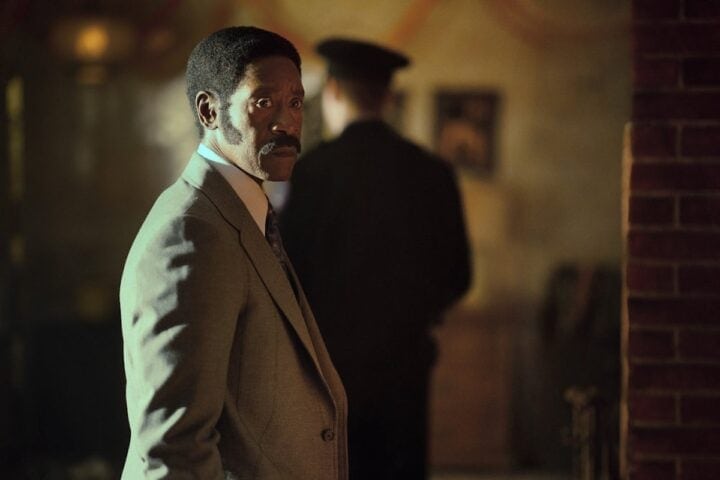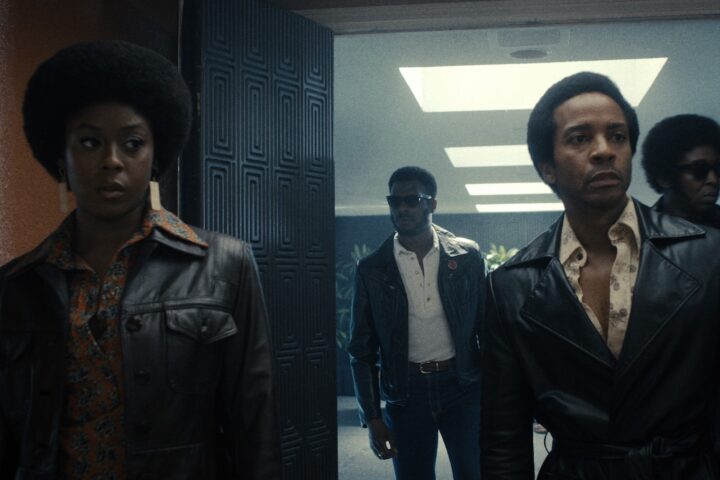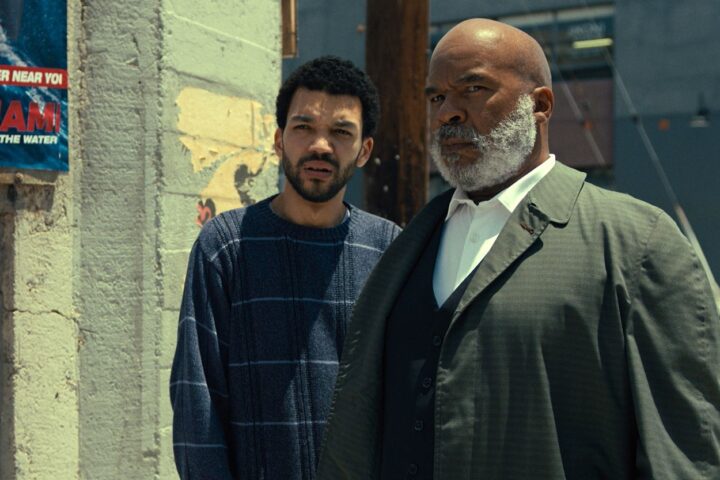There’s no doubt that John Ridley’s Shirley is trying to make a statement about marginalized peoples’ role in shaping America and their power when it comes to making their presence known to those who would never see them otherwise. But the film also uses one of our greatest and most complex Black leaders to make that statement, and it’s cheaper for it, reducing the arc of Shirley Chisholm’s life to a handful of easy platitudes and inspirational movie clichés. In the end, this sub-Sorkin-esque political potboiler sidelines her most meaningful community work to the fact that she tried and failed to run for president.
The film’s first scenes speed run through roughly a decade of Chisholm’s political life, largely glossing over her time as a teacher and years of activism for equal rights. Much of that time saw her struggling to be heard as a woman of color. But all her most important fights, straight through to her groundbreaking ascendency to the U.S. House of Representatives, are handled in the space of two montages and a breathless meet-and-greet at a New York City block party.
The film’s very first scene shows Chisholm (Regina King) as the odd Black woman out as a picture gets taken of the otherwise lily-white freshman members of Congress. There’s artistry in the way Shirley floats through the sociopolitical moment in which Chisholm will attempt her run. Footage of King’s Chisholm making speeches and building her campaign are mixed in with real-life news footage from the time, soundbites from feminist contemporaries, and interviews with other Black leaders, blurring the lines between Ridley’s film and the real events.
Tamar-kali’s score is too often traditional and stodgy when trying to underscore Shirley’s attempts to inspire, but it loosens up during these stretches, highlighting the alternative approach to Black music that the singer-songwriter has long been known for. But there’s still not much depth to these scenes, as they almost stubbornly shut down any meaningful exploration of what Chisholm is attempting to accomplish at any given moment. Never mind that the film doesn’t even get into what she did accomplish in Congress before and after running for president, which feels as if it would have made for a more impactful and interesting story.
The way Ridley’s breakneck script tells it, Chisholm’s decision to run for president manifests as an act of sheer spite. Infuriated at being assigned to the House Agriculture Committee, her rage drives her to give Speaker of the House John W. McCormack (Ken Strunk) an earful, which in turn drives her to consult with her colleagues, among them her future husband, Arthur Hardwick Jr. (Terrence Howard), and explore her viability to run. From here, much of the film settles for recreating the touchstones of Chilsholm’s career as if it were going down her Wikipedia page, with ups and downs largely predicated on her inability or unwillingness to play games with establishment Democrats, particularly the ones from her own community.
Shirley is almost more frustrating as a result of its pockets of thoughtfulness, where we can clearly see the film that could have been. A failed assassination attempt on Chisholm sees her shaken, and King walks a thin line between being scarred and sustaining her poise. Chisholm’s meeting with Huey Newton (Brad James) at Diahann Carroll’s (Amirah Vann) house to gain the Black Panthers’ support is so wonderfully tense and politically fraught that it could’ve supported a film all by itself. That scene, like many of Shirley’s best moments, comes and goes all too quickly, pushed to the wayside to focus on the least worthy parts of Chisholm’s campaign.
For what it’s worth, Ridley’s misguided script does little to dilute the power of the cast’s performances. King is, of course, the standout here, imbuing Chisholm with the complexity that’s absent in the dialogue that she’s been saddled with. And she’s surrounded on all sides by performers swinging for the fences, none more so than the late Lance Reddick, whose fierce and indomitable as Chisholm’s closest advisor, Wesley Holder. But like Chisholm’s presidential run, the right people working toward a righteous cause isn’t enough to make a winner.
Since 2001, we've brought you uncompromising, candid takes on the world of film, music, television, video games, theater, and more. Independently owned and operated publications like Slant have been hit hard in recent years, but we’re committed to keeping our content free and accessible—meaning no paywalls or fees.
If you like what we do, please consider subscribing to our Patreon or making a donation.





